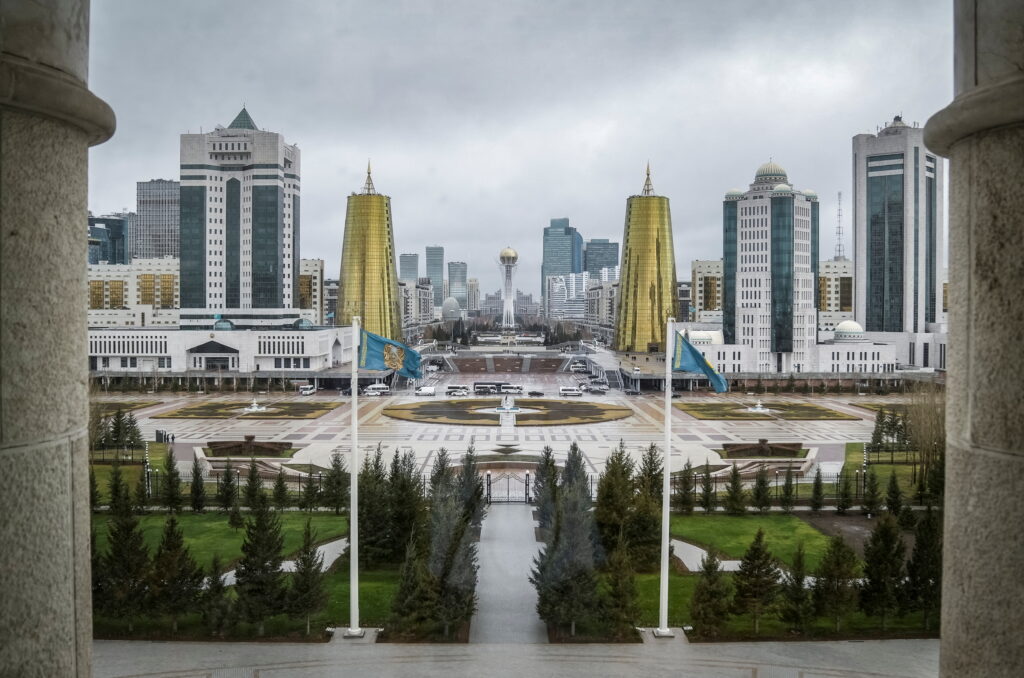Kazakhstan has arisen as a potential partner for lithium-hungry tech powerhouse South Korea. South Korea lacks the direct geographic proximity and other trappings of power that China, Russia and the West enjoy in terms of Kazakhstan’s multi-vector foreign policy. But Seoul has still positioned itself diplomatically and politically as a potential collaborator with Astana.
In the pursuit of deeper participation in Kazakhstan’s extractive industries, South Korea faces both country-level and broader geopolitical risks. The legal and regulatory environments within Kazakhstan pose complications that could deter South Korean actors from taking advantage of new opportunities related to lithium. At the same time, Russia’s hunger for lithium and its influence in Kazakhstan also underscore the risks South Korea faces if it does not invest in Kazakhstan.
Though South Korea has had limited success in penetrating the Central Asian critical minerals market, Kazakhstan stands out as a solid supplier of natural resources. The Kazakhstan–South Korea relationship took off in earnest in 2009 when then South Korean president Lee Myung-bak and then Kazakhstan president Nursultan Nazarbayev signed a raft of documents that led to the declaration of a strategic partnership between the two countries.
South Korea’s interest in Kazakhstan’s mineral and natural resource wealth comes in light of a belated but steady attempt to diversify its critical mineral supply chains. Securing a steady supply of minerals needed for industrial and technological production is essential to withstand disruptive supply chain shocks and maintain its powerful economy.
Though Kazakhstan has emerged as one of South Korea’s top suppliers of crude oil, its primary export to South Korea is uranium. But the South Korean government has shown increased interest in Kazakhstan’s largely untapped lithium supply.
Access to Kazakhstan’s mineral wealth has been a topic of discussion in recent meetings between Astana and Seoul. South Korean President Yoon Suk-yeol has spoken highly of the potential benefits of Kazakhstan’s critical mineral supplies.
Since 2022, the Kazakhstani government has partnered with the Korean Institute of Geoscience and Mineral Resources over natural resource exploration, a notable advantage for South Korea given other countries’ interest in Kazakhstan’s natural resources.
Still, any attempt to increase South Korea’s share of access to Kazakhstan’s mineral wealth, particularly lithium, will face significant challenges.
The 2022 United States Geological Survey states that Kazakhstan has 50,000 tonnes of identified lithium reserves, although Kazakhstani President Kassym-Jomart Tokayev has cited figures suggesting the country’s actual lithium reserves are possibly double that amount. Former Kazakhstani prime minister Alihan Smaiylov touted Kazakhstan’s wealth in lithium as an economic opportunity, especially due to the country’s proximity to major battery and technology-producing countries, like South Korea.
Yet Kazakhstan has not emerged as a major lithium producer. In addition to the Soviet Union’s former policy of concealing the amount of lithium reserves in Kazakhstan, there has been a notable lack of investment in Kazakhstan’s extractive industries.
Cooperation with Kazakhstan in extracting natural resources is a mutually-beneficial endeavour, given South Korea’s possession of the advanced technology that Kazakhstan needs to make mineral resource extraction feasible. But domestic issues within Kazakhstan are a major deterrent for South Korean investors. The relatively weak rule of law in Kazakhstan has often caused foreign investments in the mining industry to fail. The inconsistencies and frequent changes to Kazakhstan’s mining laws also make it difficult for external investors to gain the maximum return on investment.
Russia will be a formidable competitor for South Korea in terms of access to Kazakhstan’s mineral wealth. Kazakhstan is an emerging battleground for resource competition between blocs such as the Minerals Security Partnership — which South Korea is a member of — and BRICS, which includes Russia.
With its vast reserves of lithium and its geographic proximity to Russia, Kazakhstan could be a solid partner for Russia in its bid to diversify its lithium supply chain. Kazakhstan’s continued economic vulnerability toward Russia gives the Kremlin a leg up over other competitors, including South Korea, in gaining access to its lithium reserves. Russia could use its leverage to gain favourable concessions from Astana or from Kazakhstani companies over lithium exploitation.
South Korea will need to maintain lines of communication with Russia to ensure that it can develop a stronger political relationship with Kazakhstan vis-a-vis lithium extraction without infringing upon Moscow’s vital interests.
The Kazakhstan–South Korea relationship continues to grow apace. Yet the strength of diplomatic relations between Astana and Seoul cannot fully mitigate the risks that South Korean actors face investing in Kazakhstani lithium extraction. Still, the greater risk is Seoul missing out on an opportunity for supply chain diversification, particularly as other lithium-hungry countries show interest in Kazakhstan’s reserves.
For Seoul and its private sector partners — who play a key role in South Korea’s mineral supply chain diversification efforts — the main task will be to assess its risk appetite. The feasibility of Kazakhstan partnering with South Korea in its mineral supply chain diversification will depend on whether the risks inherent in pursuing interests in Kazakhstan outweigh the dangers of not seizing the opportunity to diversify mineral supplies.
Anthony V Rinna is Senior Editor at the Sino-NK research group.

